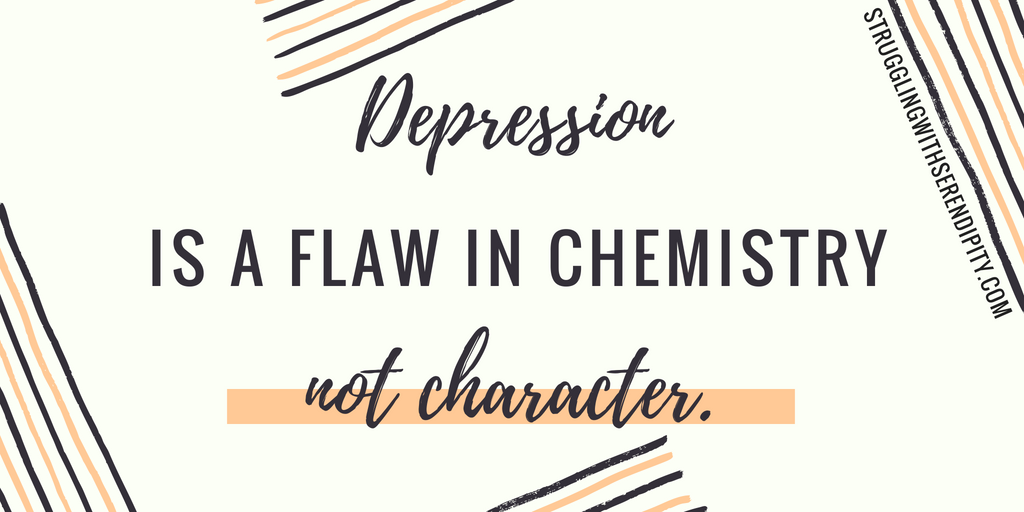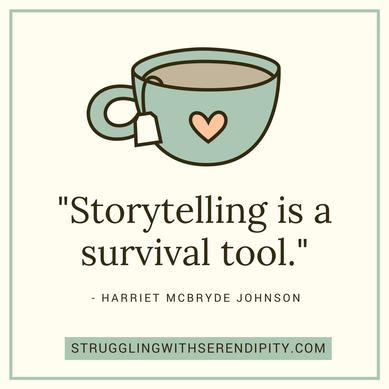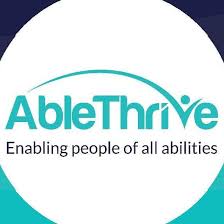|
John and I searched for simple, sparse furnishings for our new Massachusetts apartment in many stores. I shopped with Maria, too, and we checked sales and clearance racks for good deals as always. John teased about metal shelving units in all the rooms, and made do with just one in the garage.
We displayed family pictures everywhere. Our furniture matched for the first time, and I got a kick out of shopping for kitchen towels with a red theme. I found some with brightly-colored poppies, complimenting a set of red bowls with white polka dots. Medication kept the lid on my depression, but failed to stop the headache. The pain level cycled, as always. with my heartbeat throbbing in my head during peak times. The base level had continued to increase very gradually since the onset. Even so, I appreciated the fact that the base level of the headache was manageable. I walked up and down Bear Hill for exercise and helped John get his classroom ready. He had extra work to prepare to teach in a new school system in a new state. He reviewed the curriculum, all new to him. He also had to schedule and study for the teaching tests Massachusetts required, despite his National Board Certification and 30 years of experience. I debated about when to apply for a job. John suggested I postpone job applications until after the Beijing Paralympics, a year away. That was an event I wouldn’t miss, and I planned to stay in China for an extended time. We talked to Beth on the phone from her team camp at the Olympic Training Center in Colorado as they prepared for another adventure in another country. Next: Brazil!
4 Comments
 (This blog tells my family's story. To see more, click "blog" at the top of this webpage.) Dear Readers: This post is not typical. This is the second (and last) segment about my struggle with depression in Massachusetts. Thanks for following! -Cindy ❤ Five years had passed since Beth’s spinal cord injury and I had so much to be thankful for. I felt loved. I usually focused on gratitude and had no reason to feel despair. But when I gradually discontinued a medication, there it was, unbidden. With this sudden new depression, life became overwhelming. I thought about Beth not needing me in Cambridge for the next school year. The idea of her at Harvard and me in Ohio triggered old fears of health risks. How could I be in another state? What about pneumonia? What if a car hit her when she crossed the congested streets? What if she picked up a superbug virus from her chair wheels and antibiotics failed? With worst-case scenarios swarming in my head, I rode the T back to Harvard Square and hurried to Beth’s car, relieved not to see anyone I knew on the way. I drove to Fresh Pond in western Cambridge to one of the cheapest hotels in the area. Still expensive at eighty dollars a night. In my hotel room, sleep eluded me. With a searing headache, I thought about going to a hospital, but I wanted to hide this from my family. Beth was across town, but I refused to cry on her shoulder. I especially needed to call John. However, I was determined not to worry the people I loved the most. I dozed toward morning. It was my day off from the personal care assistant job, thankfully. In the light of day, it seemed obvious that body chemistry and chronic pain played big roles in my depression. Thoroughly humbled, I called my Ohio doctor’s office for a new Zoloft prescription. I braced myself for uncomfortable hours and days until the medicine helped again. I called off work at the Coop and stayed in the hotel room with the television and lights off until checkout time. I couldn’t justify another expensive hotel night, but after I checked out, I had nowhere to go. My friend Bonnie worked second shift and I couldn’t move in to her apartment until 9:30 p.m. Too restless and teary to sit or read or write, I wandered through the afternoon and evening. No longer in denial about depression, and stuck with a dependency to Zoloft. At the same time, I made peace with the fact that I needed medicine to function. I rewarded myself for not spending another night in a hotel by purchasing a new Life is Good shirt with a peace sign. The company’s philanthropy resonated with me, as well as their motto. “Life is not perfect. Life is not easy. Life is Good.” Amen. Next: Home Sweet Home!  (This blog tells my family's story. To see more, click "blog" at the top of this webpage.) Dear Readers: This post is not typical. This is about my struggle with depression in Massachusetts. Thanks for following! -Cindy ❤ I usually was not an excessive worrier. The crippling anxiety I experienced earlier, after Beth’s spinal cord injury, had been triggered by guilt and deadly health risks. When I lived near Harvard, I worried only a bit about all my children, and general things like them finding meaningful work and a loving partner. Maria and Ben had significant others; however, my youngest felt no rush to date. She had a very full plate. Both of my girls thought it appalling that I had married one week before my nineteenth birthday, much too young in their minds. We had no way of knowing that Beth’s first steady boyfriend lived across Harvard Yard in another freshman dorm, or that they would not meet until graduate school in another state. At the end of the school year, my mood plummeted quickly after I gradually discontinued Zoloft. I banked on my body adjusting over time, and it did, but not in the direction I hoped. At the same time, my roommate Janet left for Ohio to be married, which meant I needed to move out of the apartment before her honeymoon ended. For the month until the school year finished, when I would drive home to Ohio with Beth, I arranged to sleep on a sofa bed in a Coop friend’s apartment north of campus. On my moving day, I woke up to an alarming new low, exacerbated by a piercing, throbbing headache and a flare of intense fibromyalgia. I relied daily on Celebrex, an anti-inflammatory medicine, to reduce the headache. Unfortunately, the maximum dose couldn’t reach this higher level. Over-the-counter pain drugs didn’t work for me, and I had a bad reaction to opiates, so there were no good pain options. Deep sadness stung, mentally and physically. Every small thing seemed much too difficult. I forced myself to go through the motions for my morning personal care assistant job, barely saying a word and wiping tears away discreetly. After, I trudged through the thirty-minute walk from the Quad to my apartment on auto drive. I passed through the tiny apartment for the last time to take the garbage out, my steps creaking on the uneven floor. Janet bought my bed, and I left her my lamp and the bedding. When I pushed my key under Janet’s door, I carried my duffel, the same one I moved in with eight months earlier. I left the duffel in the trunk of the car. I had the day off from the Coop and planned to move into my temporary housing that evening. I stood at a corner, overwhelmed by sadness and the simple choice of which street to cross. And the idea of moving to a friend’s apartment where I’d never been before. The sunny day colored in despair, carrying me back to my old guilt and regret. I couldn’t stop crying. I felt weak and worthless. Frustrated and embarrassed, I decided not to reach out to John, or anyone. I didn’t have anywhere to go, no bed to curl up on, so I rode the T into Boston with the plan of hiding in a movie theater while I regained control. Instead, I paced in the expanse of the Boston Common, trying to calm down enough to call my friend Bonnie. I told her I’d move in the next day instead of that evening. I walked aimlessly, not caring how I looked. Far from home, I didn't know anyone in Boston. Even in tears, I certainly wasn’t the strangest sight in the Common on that or any other day. Next: Depression and Hope! (This blog tells my family's story. To see more, click "blog" at the top of this webpage.) Two and a half years after Beth’s spinal cord injury, I expected a gradual catharsis with my weekly counseling. But sessions still only stirred up tearful regrets for causing the accident. I thought that I must be doing something wrong, that I failed at therapy. After, I sat in the car, breathing deeply, until I carried no visible baggage home. I scheduled more appointments, hoping to find the person I had been before the accident. I was determined to redeem myself with Beth, though others needed me, too. And I needed them. I was intensely grateful for the people in my life. I wished gratitude could cure anxiety. Trying to look normal was a challenge on days when worst case scenarios dominated my thoughts. I had to concentrate to pay attention, even with my immediate family, though there was no lack of love or genuine interest. Unlike Beth, I had no grand goals. What I basically wanted — after magically erasing Beth’s injury — was the absence of pain. No headache that ebbed and flowed. No guilt and depression. No anxiety that also ebbed and flowed. Some days, Beth emanated vulnerability, a lifelong quad perpetually haunted by scary health risks: autonomic dysreflexia, serious infections, bladder stones, blood clots, and pressure sores. On other days, she looked to me like the happy and healthy teenager that she actually was. As a high school junior, Beth never saw the need to say no to extra activities. On top of AP classes and too much homework, she volunteered for fundraisers with the Raptors and for community events with the National Honor Society. She wrote for the school newspaper and worked on the yearbook. She followed her brother’s lead and earned a spot on the Quiz Bowl team. Her specialty: literature. A doctor also asked her to exchange emails with another teenager with a new spinal cord injury. Beth needed me less often, but I was there when she did. At the YMCA pool, on her forward motion quest, she progressed to spending more time with her head above water than under it. I read a book again while I sat on the bleachers, instead of watching every minute. One evening, she finished a backstroke lap as her high school’s swim team arrived to practice. As a few friends stopped to say hello to her, their head coach, Peggy Ewald, introduced herself to Beth... A fortunate accident. Serendipity.  (This blog tells my family's story. To see more, click "blog" at the top of this webpage.) During Beth’s first summer vacation at home with a spinal cord injury, she focused on time with friends. We rode with another mom in her van full of excited teenagers to an N’Sync concert in Michigan, with the words “PopOdyssey N’Sync” in bright paint on the back window. Near Detroit, a traffic jam on I-75 turned into a party. Girls blared music, waved signs, and shouted to each other across the highway lanes. That might have been fun except for temperatures in the 90’s with high humidity. The van had no air conditioning and there was no breeze as we inched along. Beth flushed with fever, her body unable to sweat to cool down. I carried Tylenol, but nothing to drink it down with since we didn’t anticipate the traffic jam. I encouraged her to take it without water, but she wanted to wait. Approaching the stadium, I frantically waved the handicapped-parking placard out the window at the traffic cop to avoid another jam of cars. Finally parked, I hurried Beth out of the van to the first drink stand for cold bottled water. She took the Tylenol and drank extra water before we found our seats. In shade, Beth felt better before long and danced with her friends. They watched Justin Timberlake, the 20-year-old who stole the show in the pulsing lights on the stage. Our summer comings and goings confused Beth’s high-strung African Gray parrot. He plucked out feathers and injured his skin. A vet put a plastic cone around his neck, making him more miserable. We wondered if Timber had been taken from his parents too soon, and a friend recommended a bird sanctuary in Cleveland. Whether it was my fault or not, the parrot toddler needed more help than we could give. I drove him to the sanctuary, which included an extensive outdoor aviary with dozens of birds. Beth and I cried when we said goodbye to Timber, but we were glad to hear that he recovered quickly, delighted in his new home. Early on an August Saturday, firemen lifted Beth in her wheelchair onto a boat at a Sandusky pier on the Lake Erie shore. I skipped the fishing part of the Fishing Without Boundaries event. When the boats returned, I heard about how Beth caught more perch and walleye than her dad. The boat’s young first mate watched three fishing poles and handed one to her whenever he had a nibble. She reeled in about two dozen fish and let someone else take the fish off the hook. A friendly crowd gathered for a picnic near the docks. A mom told me how children at school made fun of her daughter, who grew up feeling like a victim. A dad shared his ongoing battle with pressure sores, reminding me of an article I read about a woman who had both legs and part of her trunk amputated because of pressure sore infections. Surrounded by the perspective of significant disability, I understood the mental argument that I should be happy and grateful. I was grateful. I could get through most days without crying, and yet... ...part of me sludged through guilt that felt like grief. ...through depression and anxiety that made me afraid of the future. Catastrophes seemed to be waiting in the wings, for Beth, for me, for the rest of our family, for our friends, and for the world. I listened to Beth laugh with the other teenagers and wondered if she could avoid depression entirely.  (This blog tells my family's story. To see more, click "blog" at the top of this webpage.) Beth's young African Gray parrot screeched and squawked in an impressive range of piercing, demanding sounds. I tried to give Timber attention when he wasn’t yelling at me, but he didn’t like my attempt at a behavior plan. The parrot woke up early every day, an impatient alarm clock. On weekends, John and I took turns babysitting so the girls could sleep in. During my turn, Timber sat on my shoulder while I folded clothes or cleaned or cooked or rewrote my to-do list. I couldn’t sit still. Through Beth’s freshman year of high school, weekends focused on recovery. Maybe a movie with friends or an excursion to the YMCA pool. Our packed weekdays were overwhelming and exhausting between school, physical therapy, occupational therapy, extensive homework, and frequent medical appointments. Every small action of life was a challenge. The approaching holiday season lost its appeal for me. Timber shrieked when I pushed his cage in a corner to make room for our artificial green tree. With everyone busy, I decorated most of the tree, topping it with a red glass cardinal. The sweet ornaments my kids made when they were little did not evoke the usual nostalgia. I fought more tears, thinking about my babies growing up and the end of childhood. I avoided people and neglected friendships. I dreaded the social interactions required at holiday choir concerts and other events; “How are you?” echoed from well-intentioned acquaintances. How should I respond? I would not share my regret in the high school lobby. I refused to be a lightning rod for pity. When I was asked about Beth, deadly health risks of quadriplegia came to mind. Instead, I said something about her amazing attitude and found an excuse to retreat. My counseling sessions slammed me every week with sharp dichotomies. I had no disability and fought with pain every day. I appeared calm and anticipated crisis. I loved my family and my heart ached. My guilt spilled over in waves. How could I contain it? My psychologist didn't know. She reminded me about all the things out of my control—which might have been helpful for someone in a better frame of mind.  (This blog tells my family's story. To see more, click "blog" at the top of this webpage.) At the rehab hospital, Beth and I took turns reading aloud in the evenings from the new Harry Potter book, Goblet of Fire. She could hardly hold the book, even though it rested on a small table over the bed. At first, turning pages was impossible and we used clothespins to keep the pages open. We put a fat tube around a pencil so she could use the eraser end to turn a page. That worked until she eventually figured out how to accomplish the job with just her hands. She somehow sustained an easygoing attitude about almost everything. It suddenly became imperative that the bottom of her jeans covered her ankles when she sat in a wheelchair. Immediately after a transfer, I grabbed the extra fabric at her knees and pulled it down so the bottom hem touched her shoe. Then, at her request, I adjusted it again. Fourteen years old, she also added these steps to the ending routine in physical therapy. “Beth worked long hours in rehab,” Laraine said, “learning to move about in her wheelchair and moving from place to place from her chair. To do these tasks, innervated muscles need to be very strong and much of her day was spent weightlifting and exercising.” The physical therapists and aides became trusted friends. However, the hospital director was an expert on strokes, not spinal cord injury. “The director told me that I should never get in a pool,” Beth said, “because my body would go into autonomic dysreflexia—my blood pressure would shoot up, my temperature would rise, and I could have a stroke. Luckily, my physical therapists disagreed with the doctor, but I had to wait until I was an outpatient to try their heated therapy pool.” The hospital director also insisted that everyone with a spinal cord injury should need help for depression, so Beth agreed to meet with a psychiatrist. After two sessions, she asked if she had to keep talking to him. He told her she was in denial about her disability! ...which didn’t make any sense to me, since she talked openly about her injury and asked about details. It amazed me how easily she dismissed the psychiatrist’s judgment as a minor nuisance, with no need to argue or to change his mind. He seemed a little distressed because she didn’t experience set stages. Looking back, it's clear to me that everyone in my family struggled to accept her injury—all of us, that is, except for Beth. A newspaper reporter wrote: Pressed if she has ever asked, “Why me?” Kolbe said, “No, I never did. I never did the whole grieving process thing. I was too busy during rehab. I had great physical therapists.” |
Cindy KolbeSign up for my Just Keep Swimming Newsletter by typing your email address in the box. Thanks!Categories
All
Archives
November 2022
|



 RSS Feed
RSS Feed











